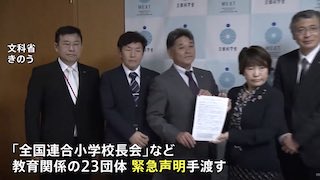Nov 16 (Japan Times) - Japan's economy marked a seven-quarter growth run through September --- the longest in 16 years --- but the outlook appears less rosy, as surprisingly strong private consumption before this summer may prove to have been just a blip.
With policymakers hoping consumers were finally loosening their purse strings, there is a sense of disappointment that the goal of achieving improved domestic demand remains elusive.
Gross domestic product grew at an annualized rate of 1.4 percent in July-September amid robust exports of electronic components and cars. But the data released Wednesday showed private consumption, accounting for nearly 60 percent of the GDP, fell for the first time in seven quarters. It slipped 0.5 percent in July-September following a 0.7 percent increase in April-June.
Economists say there is no cause for excessive pessimism as the slowdown was widely expected and private consumption will likely trend toward a moderate recovery.
But the prevailing view is that robust wage growth continues to be the missing link that would spur consumers to become more confident about spending.
"On balance, private consumption will likely grow at a moderate pace and yet slow wage growth will become a bottleneck," said Yuichi Kodama, chief economist at Meiji Yasuda Life Insurance Co. "The economy may be cruising ahead, but what matters is how it's going to build speed from now."
Surpassing the 57-month Izanagi boom between 1965 and 1970, the current economic expansion cycle is believed to be the second-longest in postwar Japan.
With exporters reaping the benefits of the yen's depreciation, earnings at major Japanese companies have spiked. Share prices followed, hitting multiyear highs as global economic growth becomes what the International Monetary Fund has termed "broad-based."
Still, critics say the benefits of such an expansion have yet to be felt broadly by consumers as nearly five years of "Abenomics" has so far failed to break Japan free from deflation.
In a fresh bid to inject momentum into his push for what he calls a "virtuous cycle" of strong wage growth-stimulated consumption, Prime Minister Shinzo Abe is now increasingly calling on companies to play their part. Abe is calling for a 3 percent hike in salaries in wage negotiations between management and labor unions next spring.
Source: ANNnewsCH















